Productions are embracing sustainability with innovative approaches: from reusable set materials and modular systems to circular-economy initiatives, reducing waste and environmental impact in the industry.
When a movie wraps, the production often deals with a lot of set decoration material that won’t be reused or recycled. If there is no disposal strategy, it is simply too late, so precious resources end up as waste. However, film productions don’t have to leave behind a mess. Waste management starts with procurement. Whenever an item is purchased, a plan should be in place to determine where these materials can go after the shoot.
In the hierarchy of waste management, prevention is the top priority. The second-best solution is to reuse materials, which saves time and resources and reduces costs. For this reason, the Bulgarian production company B2Y is reusing drywall frames as if they were Lego blocks, which presents several advantages. It speeds up the construction process by almost 30 percent, leading to fewer prep days, less material use, and lower crew expenses.
A similar approach is being taken by British set designer John Baker, who developed the SpeedSet system, consisting of prefabricated components made of recycled aluminium. The push-fit system can be connected without tools, making the setup about ten times faster than construction with comparable wood-frame flats. The set wall can be wallpapered or plastered, while SpeedSet components such as toeboards, light switches, tapware, and backsplashes can be magnetically attached to the wall. Even wall sockets are prefabricated and ready to be plugged into the set wall. Thanks to its certification, no electrician is required for installation. Moreover, SpeedSet provides an integrated rigging system so that no tripods are needed outside the set.
A circular-economy approach is also being taken by French set designer Philippe Boulenouard, who created the Les 3 Portes Storage initiative, introducing the standardisation of set construction to the film industry. Wooden panels have the same standard dimensions so that they can be reused for set decoration. After a production wraps, the Ressourcerie du Cinema in Paris collects and restores the doors, windows, flooring, tiling, and painted backdrops, which are then featured in an interactive online catalogue.
In Great Britain, Scenery Salvage provides scenery removal and recycling services. The company removes unwanted scenery from a set. Productions need only pay the transportation costs, the weight per ton, and the labour for offloading. While items such as doors, windows, furniture, props, and costumes can be resold or donated to low-budget productions, the remaining wood, metal, and plastics are sorted, and either stored or processed. For productions that want to reuse their sets, Scenery Salvage offers a set storage service.
The British company CAMA even offers software that enables film and TV productions to decide whether their assets will be reused, sold, or disposed of after filming. All items that come into the store are photographed. The photo, product information, location, and timeline of every item are fed into the system so that clients can see which assets are stored in each container. Thanks to the cloud-based asset management system, studios such as Universal, Paramount, Netflix, and Amazon have direct access to their online inventory, and they can even define levels of access rights to their assets.
Reusing material saves a lot of resources but requires transporting heavy loads. Therefore, British producer Tom Henderson and cardboard artist Chris Gilmour chose a different approach with their company The Vectar Project. They developed a set of stable components made from cardboard that enable faster construction and rearrangement of sets. The award-winning Vectar boards are much lighter than massive wooden panels, so their transport causes fewer carbon emissions. The paper-based sets are recyclable and are being used by the set departments of broadcasters such as ITV, BBC, Channel 4, STV, and RTL.
–
Words: Birgit Heidsiek









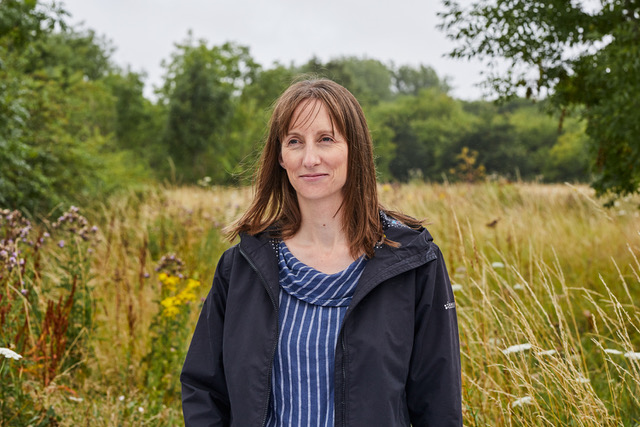
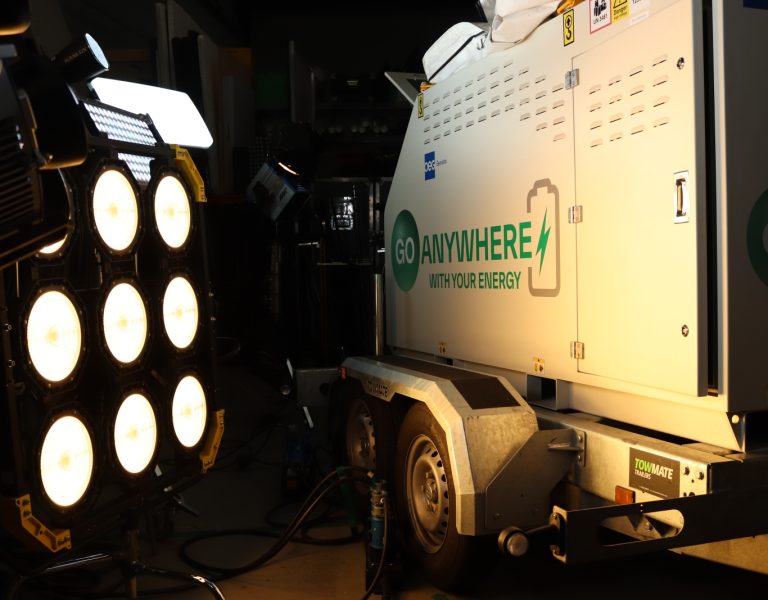
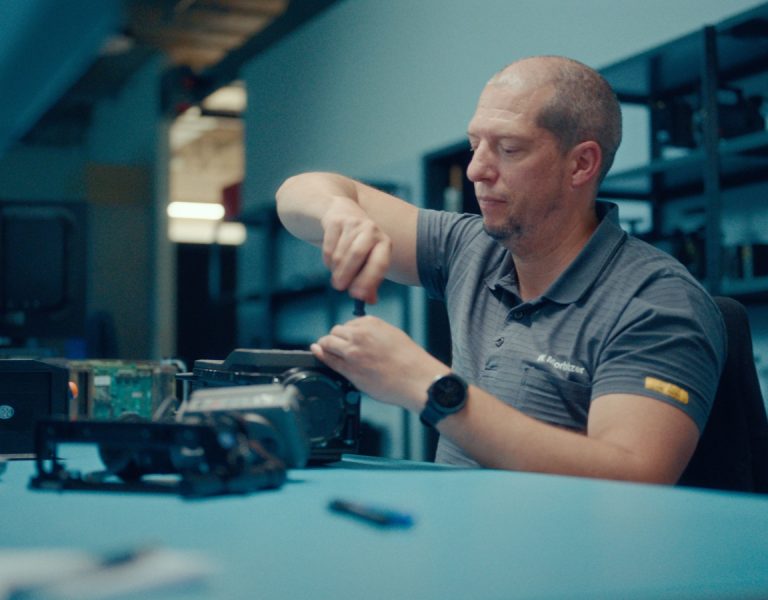
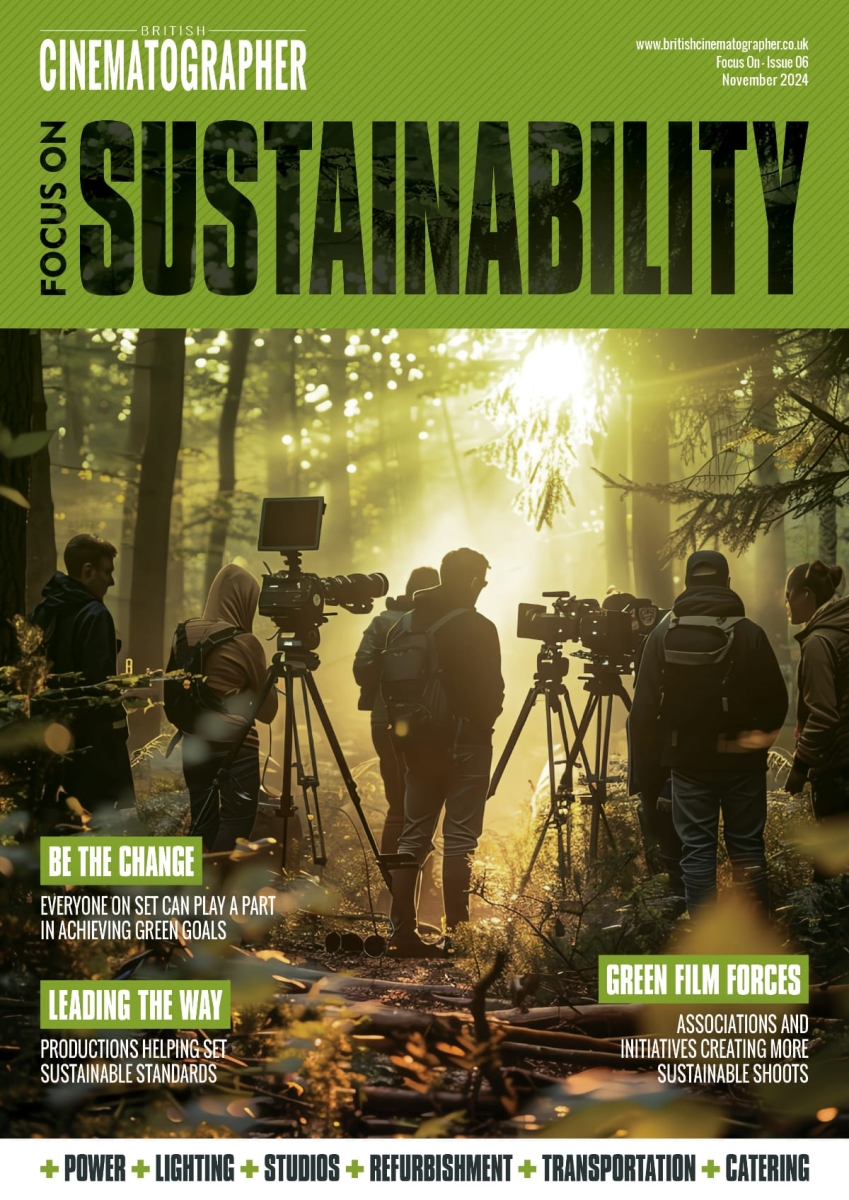
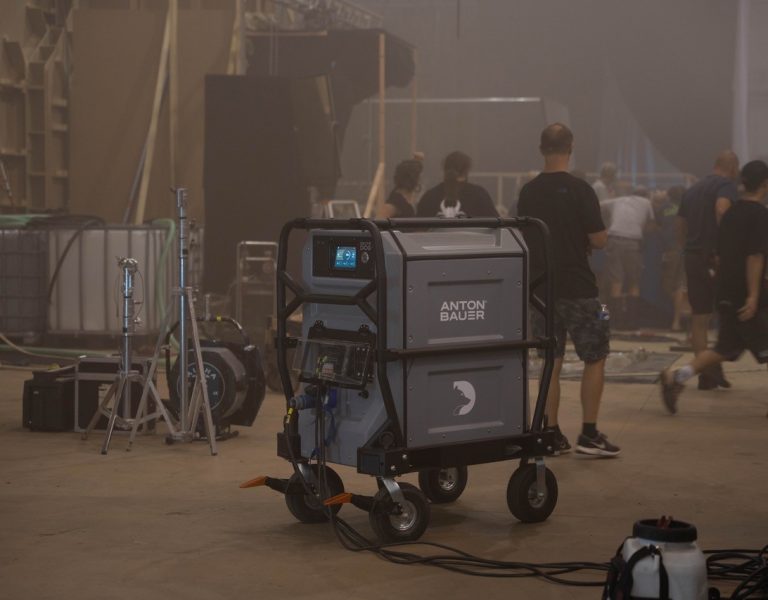
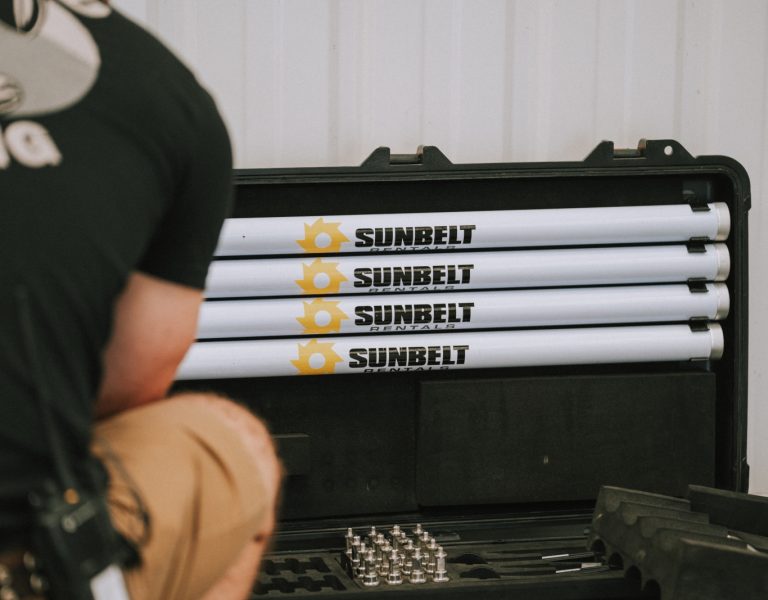
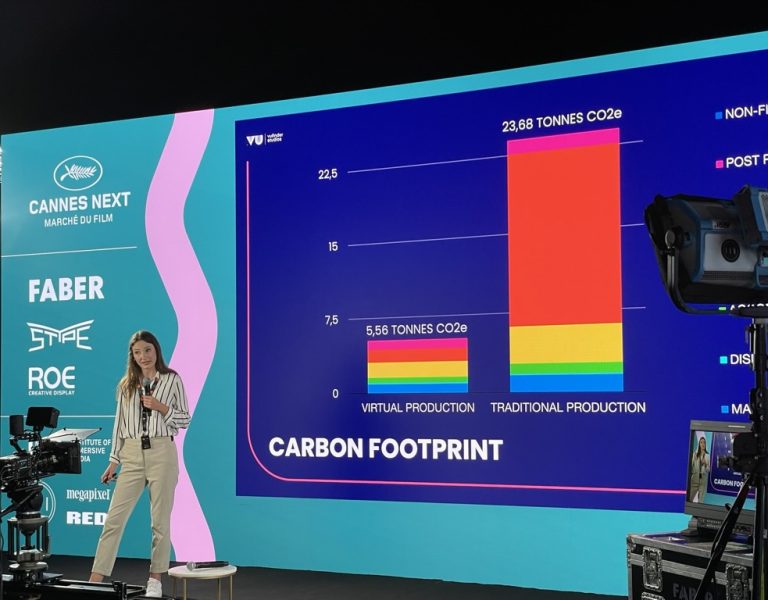




Comment / April Sotomayor, head of industry sustainability, BAFTA Albert